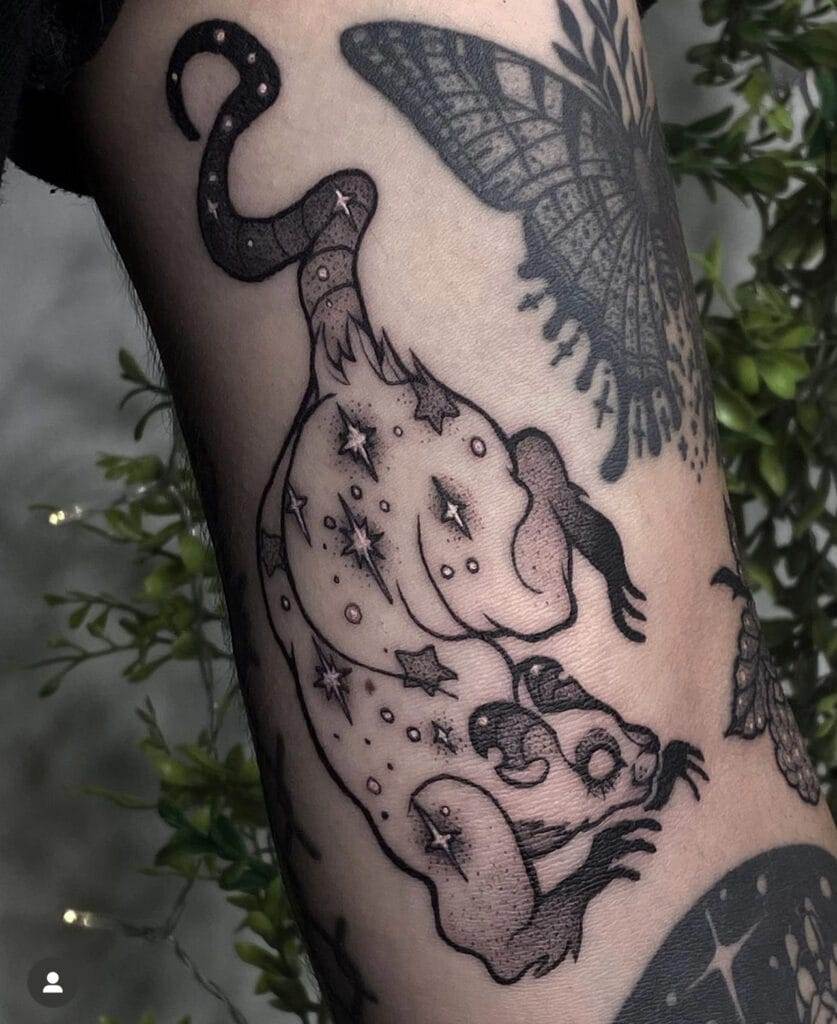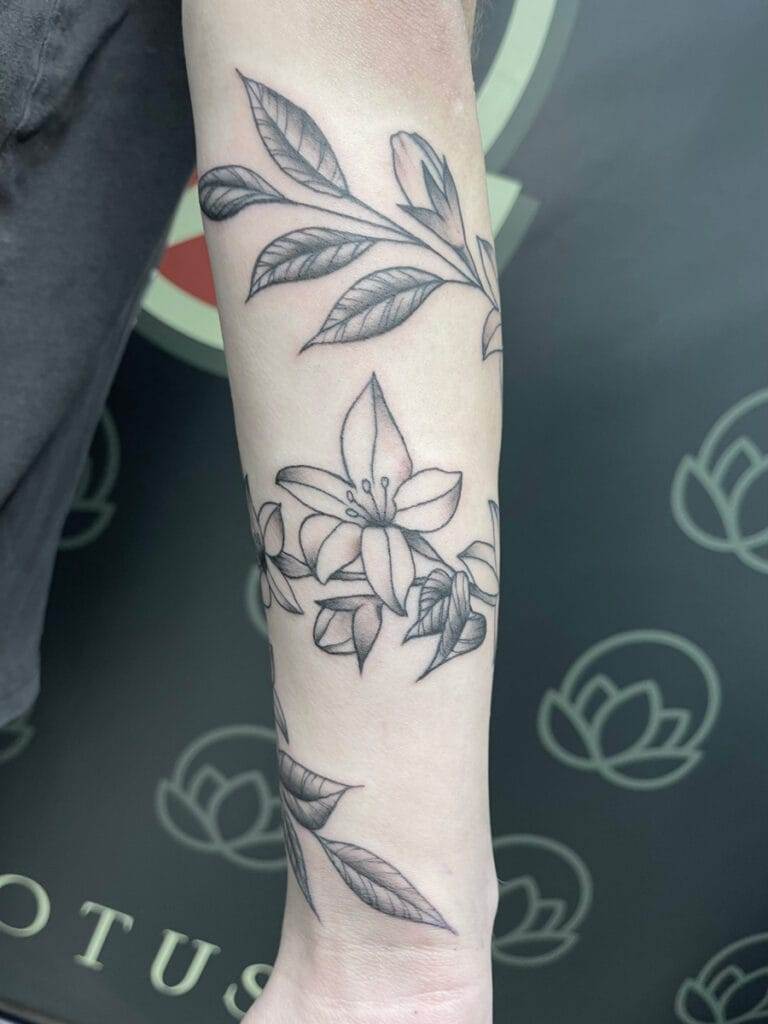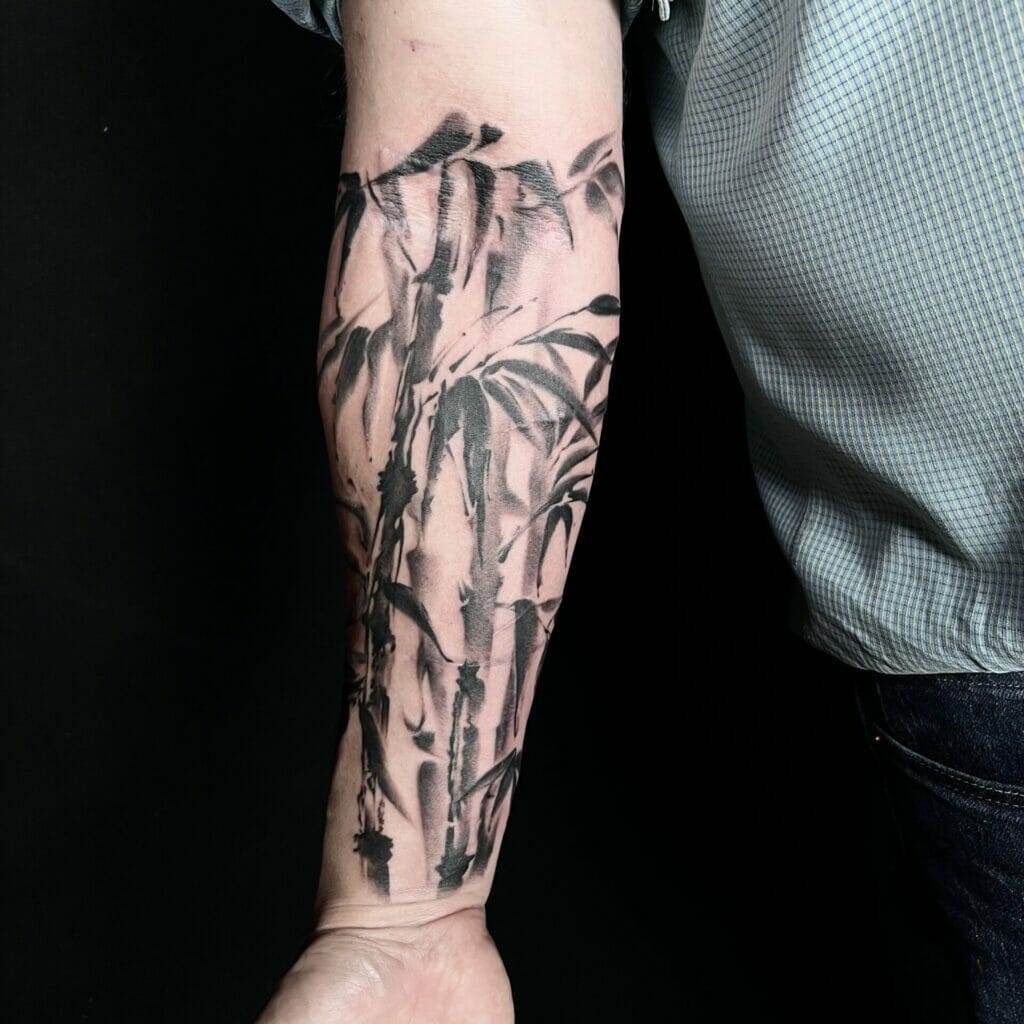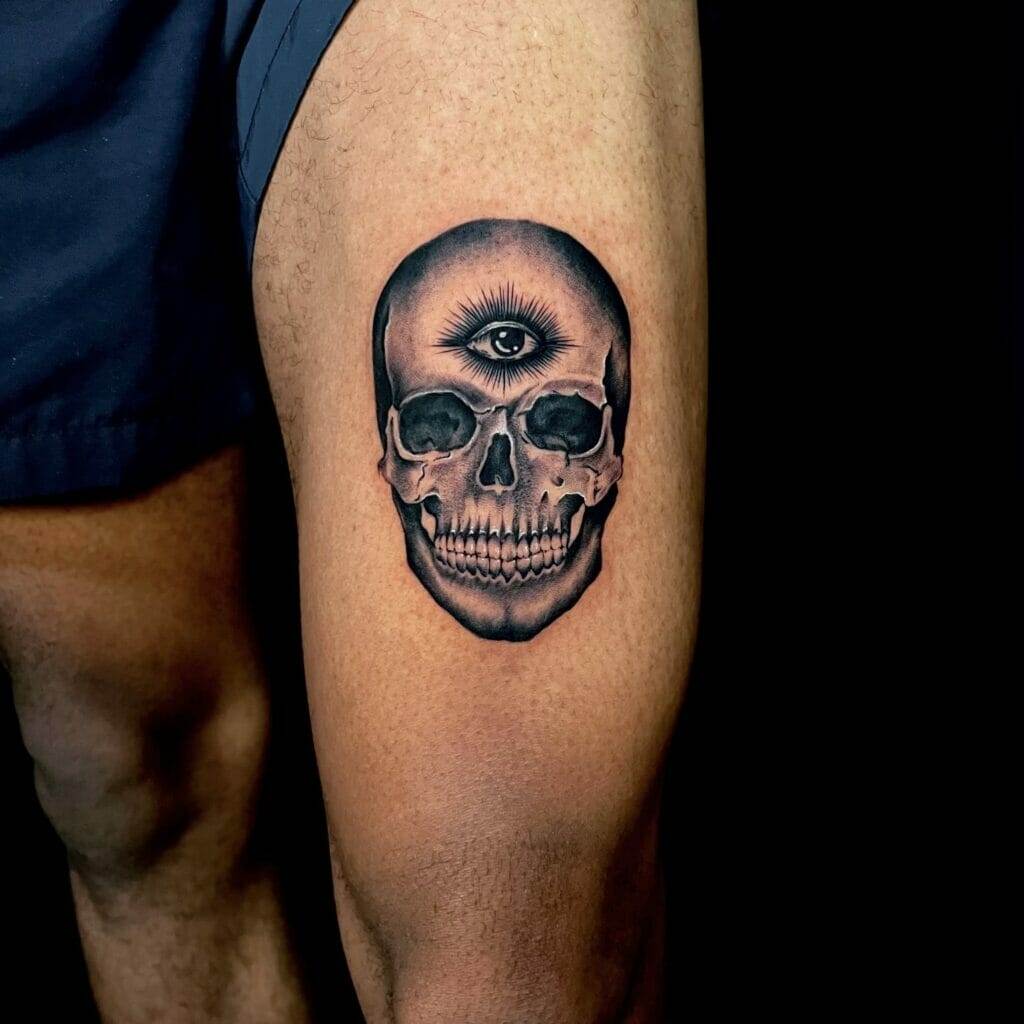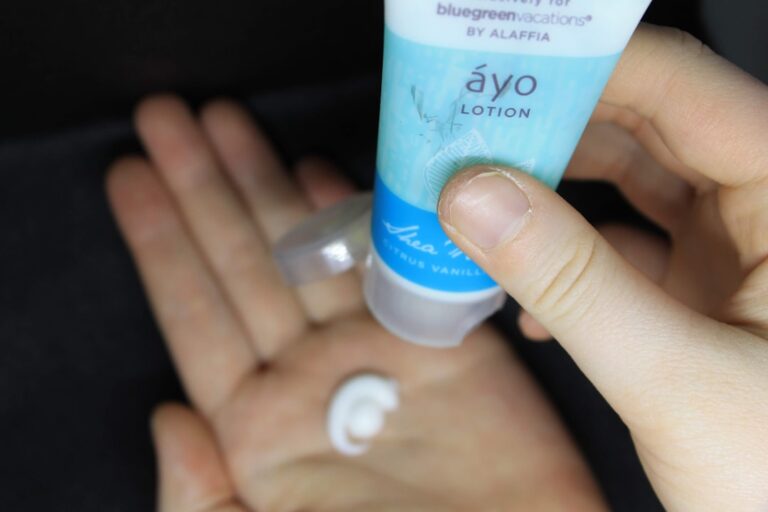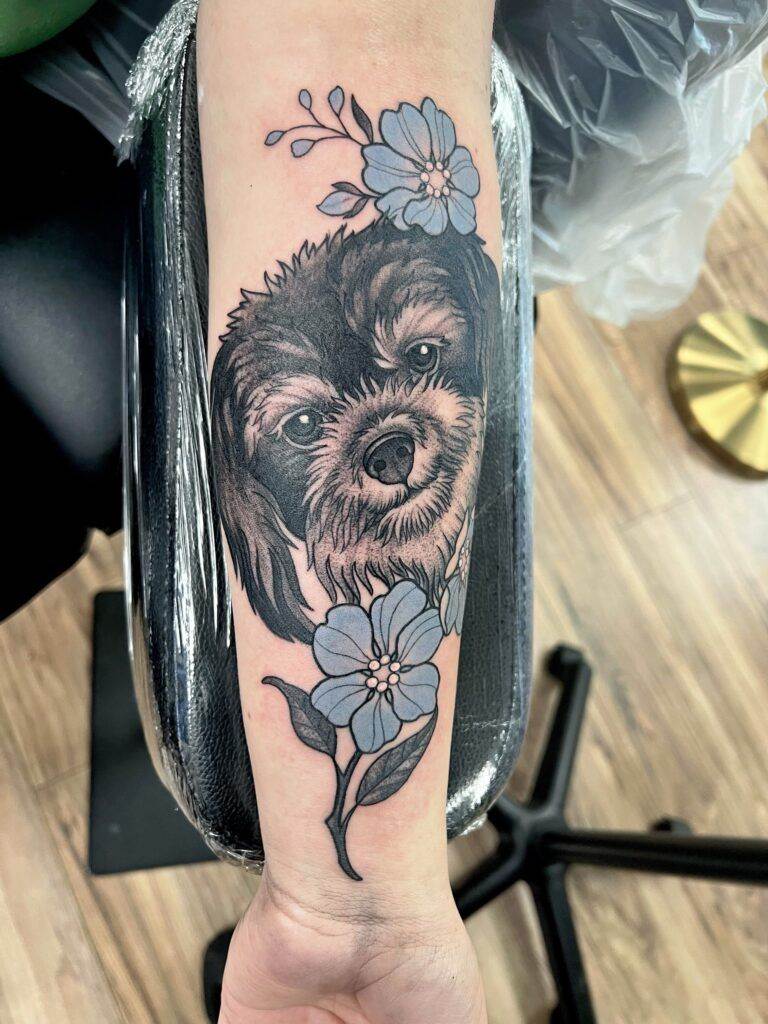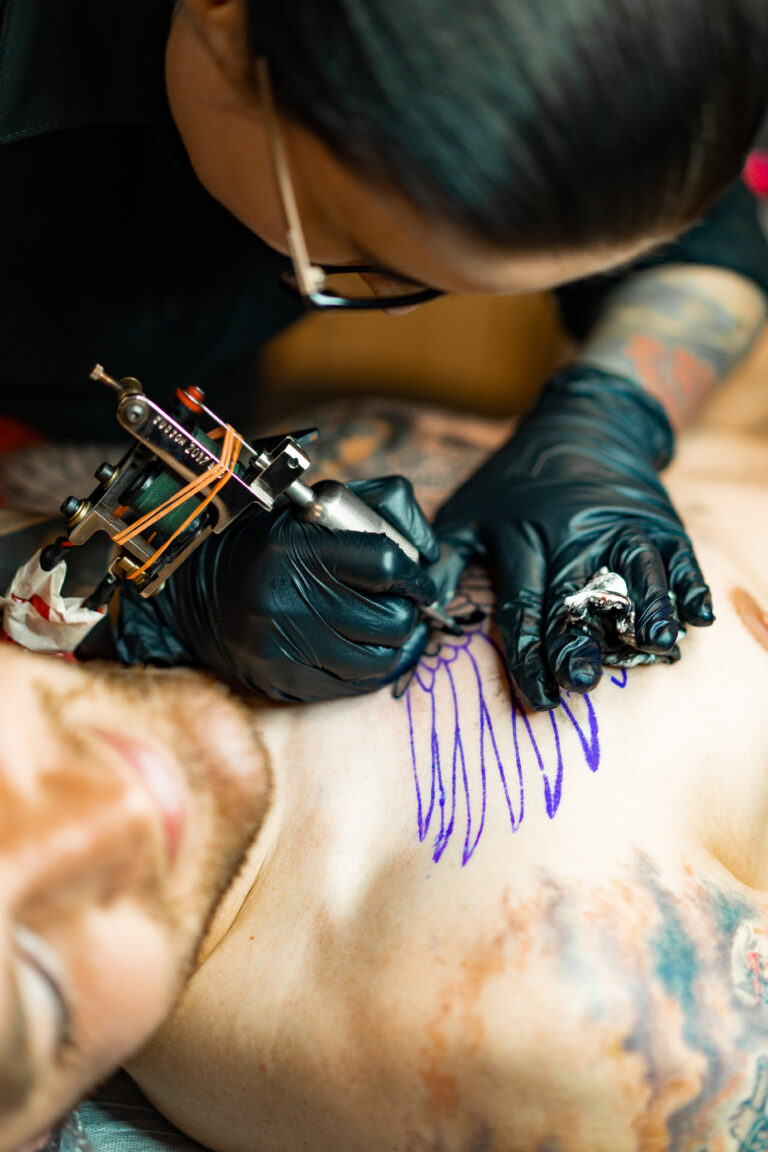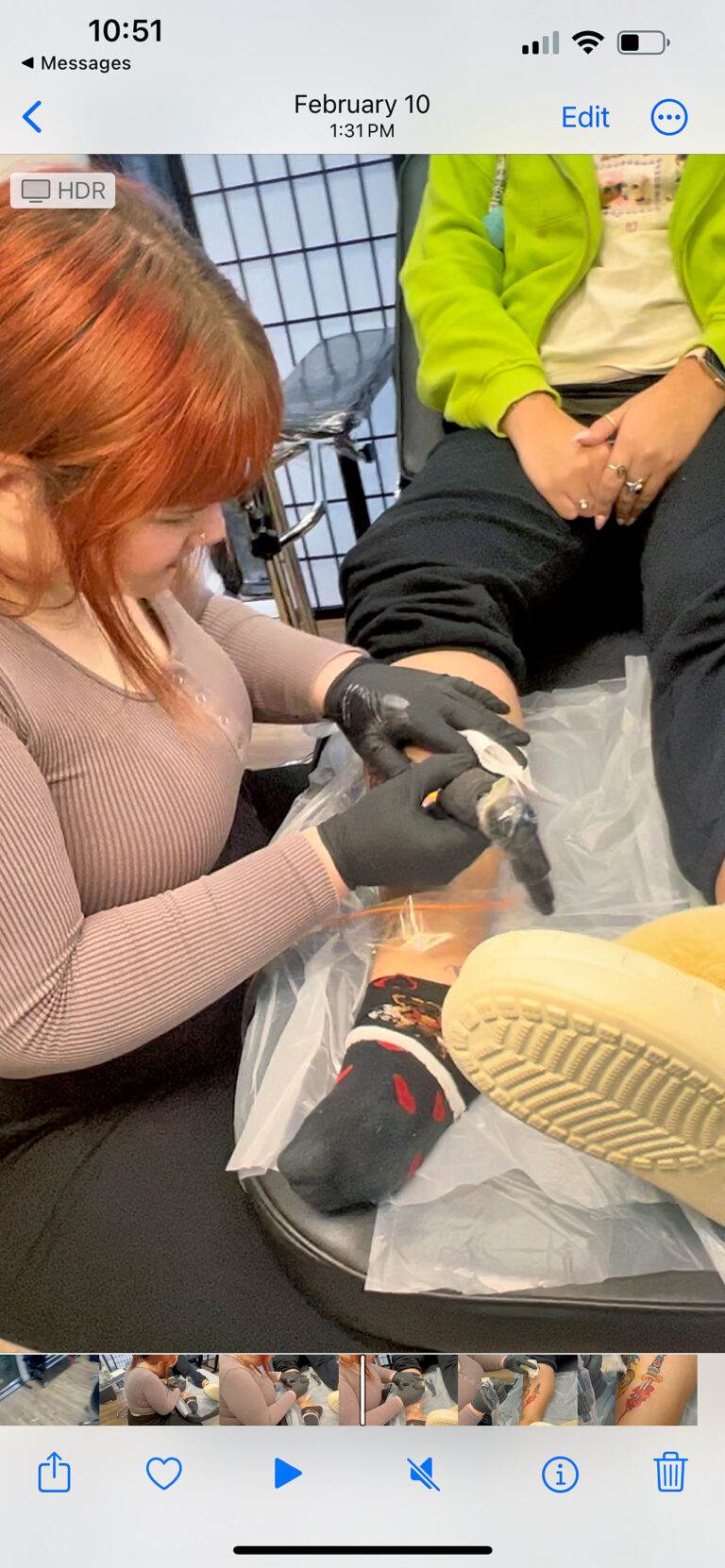Introduction
Importance of Tattoo Aftercare
Getting a tattoo is an exciting milestone, but it’s crucial to remember that proper aftercare is just as important as the decision to get inked. After all, this ink is not just a design; it’s a commitment to a piece of art that will be on your skin for life. Effective tattoo aftercare helps to ensure that the tattoo heals correctly, which means vibrant colors and defined lines for years to come. Some key reasons why aftercare is vital include:
- Preventing infection, which could compromise the tattoo.
- Minimizing scabbing and fading.
- Promoting faster healing.
Common Mistakes to Avoid
With excitement comes the risk of misunderstanding aftercare procedures. Here are some frequent mistakes people make:
- Forgetting to clean the tattoo: Skipping this step can lead to irritation or infection.
- Using harsh products: Not all soaps or lotions are suitable for a healing tattoo.
Being mindful of these common mistakes can make all the difference in preserving the integrity of your tattoo.
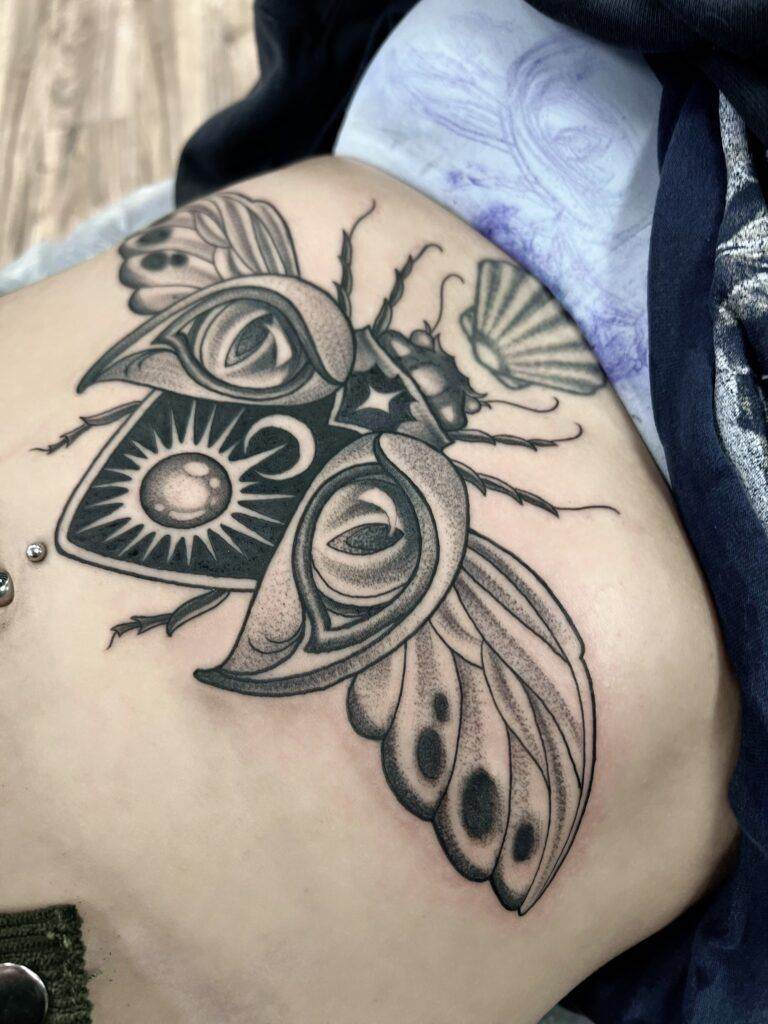
Initial Aftercare Steps
Cleaning and Bandaging
After leaving the tattoo studio, the immediate care you give your new ink is crucial. The first step is to ensure the tattoo is cleaned properly. As soon as you can, gently remove the bandage (usually after a few hours) and rinse the tattoo with lukewarm water. This helps remove any excess ink or blood.
- Use your hands: Avoid using a washcloth, as it can harbor bacteria.
- Pat dry: Once cleaned, gently pat the area dry with a clean towel—do not rub!
Next, you may need to apply a sterile bandage again to protect it for the next few days.
Avoiding Sun Exposure
One of the most important aspects of initial aftercare is protecting your tattoo from the sun. UV rays can damage the healing skin and fade your tattoo quickly.
- Stay indoors during peak hours: This is typically between 10 AM and 4 PM.
- Wear loose clothing: Covering the tattoo with loose fabric can provide protection without irritating the skin.
Following these steps will ensure your tattoo not only remains vibrant but also heals beautifully.
Daily Care Routine
Moisturizing and Hydrating
Once the initial healing phase is underway, establishing a daily care routine is essential for maintaining the quality of your tattoo. This involves regular moisturizing and hydrating. Applying a fragrance-free lotion or a specialized tattoo aftercare product helps keep the skin supple and reduces itchiness, which can be especially tempting.
- Choose the right moisturizer: Look for products that are rich in vitamins and free of alcohol.
- Apply daily: Ensure you moisturize at least twice a day to keep the skin hydrated.
Regular moisturizing not only helps with the healing process but also enhances the tattoo’s appearance over time.
Protecting from Water
While it’s important to keep your tattoo clean, you should be cautious with water exposure, particularly during the first few weeks.
- Limit soaking in baths: Instead, opt for quick showers.
- Avoid pools and hot tubs: Chlorine and bacteria can irritate your tattoo.
By carefully balancing hydration and water exposure, you can promote a smooth healing process and ensure your tattoo remains stunning for years to come.
Keeping the Tattoo Clean
Washing Properly
Maintaining cleanliness is pivotal in preserving the integrity of your tattoo during the healing process. When it comes to washing, it’s essential to do it right to prevent infections and complications. Start by gently rinsing your tattoo with lukewarm water.
- Use your hands only: It’s best to avoid washcloths or sponges during the early healing phase to minimize the risk of irritation.
- Be gentle: Rubbing or scrubbing can damage the healing skin, so always treat your tattoo with care.
After washing, pat the area dry with a clean towel—a simple, effective step that many overlook.
Using Mild Soaps
Choosing the right soap plays a significant role in tattoo aftercare. Opt for a mild, unscented soap to cleanse your tattoo without introducing harsh chemicals.
- Look for hypoallergenic formulas: These types are less likely to cause irritation.
- Avoid antibacterial soaps: While they may sound beneficial, they can be too harsh for newly inked skin.
Incorporating these practices into your daily routine will ensure your tattoo stays clean and brilliantly vibrant throughout the healing journey.
Avoiding Common Mistakes
Scratching or Picking
As your tattoo heals, it’s natural to experience some itchiness or peeling, which can be frustrating. However, it’s crucial to resist the urge to scratch or pick at your tattoo. This can lead to serious consequences, such as scarring or ink loss.
- Keep your hands busy: If you feel the urge to scratch, try squeezing a stress ball or distracting yourself with an engaging activity.
- Use a soothing lotion: Applying a tattoo-friendly moisturizer can help alleviate the itchiness without risking damage to your artwork.
Overexposure to Sun
Protecting your tattoo from the sun’s harmful rays is another essential aspect of aftercare. Overexposure can not only cause the colors to fade but may also lead to painful burns on sensitive, healing skin.
- Apply sunscreen generously: Once your tattoo has fully healed, use a broad-spectrum sunscreen with at least SPF 30 when exposed to sunlight.
- Seek shade: When possible, stay in shaded areas during peak sun hours to minimize exposure.
By steering clear of these common pitfalls, you can significantly enhance the longevity and vibrancy of your ink.
Signs of Infection
Redness and Swelling
While some redness and swelling are normal parts of the healing process, excessive or prolonged redness can be a cause for concern. If the area around your tattoo becomes increasingly red or inflamed, it may indicate that something is amiss.
- Assess the heat level: If your tattoo feels warm to the touch, this could be another warning sign.
- Monitor the duration: Redness should gradually subside within a few days; if it lingers, it’s time to consult a professional.
Hearing about these signs is one thing, but being aware of your own body can truly make a difference.
Pus or Discharge
One of the more alarming signs of infection is the presence of pus or unusual discharge from the tattoo. Healthy tattoos should not produce any significant liquid.
- Color and consistency matter: Yellow or green pus often signals an infection that requires immediate attention.
- Seek medical advice: If you notice any discharge, it’s crucial to contact a healthcare professional to prevent further complications.
Being vigilant about these signs can help ensure your tattoo remains as beautiful and healthy as intended.
Essential Products for Aftercare
Recommended Lotions
Choosing the proper lotion can make a significant difference in the healing process of your tattoo. A good tattoo lotion should be free of fragrances, alcohol, and irritating chemicals to ensure that your skin remains nourished without adverse reactions.
- Look for products rich in vitamins A and E: These ingredients help promote healing and add moisture to your skin.
- Consider organic options: Natural lotions often contain soothing ingredients like aloe vera and coconut oil.
Remember to apply your chosen lotion consistently, typically twice daily, to keep your tattoo vibrant and hydrated.
Healing Ointments
In the initial healing stages, a healing ointment can be immensely beneficial. These ointments create a protective barrier that helps prevent infections while keeping the skin moisturized.
- Opt for ointments specifically designed for tattoos: These tend to have the right balance of moisture and healing properties.
- Be cautious with petroleum jelly: While it’s effective for other skin issues, it can suffocate a healing tattoo if overused.
Using the right products will ensure that your tattoo heals properly and retains its stunning appearance for years to come.
Dietary Considerations
Importance of Hydration
While topical care is vital for tattoo aftercare, it’s easy to overlook the role that hydration plays in the healing process. Keeping your body well-hydrated promotes optimal skin health, helping your tattoo to heal more effectively.
- Aim for at least eight 8-ounce glasses of water daily: This helps flush out toxins and keeps your skin elastic.
- Watch for signs of dehydration: Dry skin and fatigue can slow down healing, so keep that water bottle handy!
Incorporating good hydration habits can significantly enhance your tattoo’s appearance and longevity.
Foods to Promote Healing
What you eat can also impact your tattoo’s healing journey. Focusing on a balanced diet rich in vitamins and minerals is essential.
- Opt for protein-rich foods: Items like chicken, fish, beans, and legumes help repair skin tissue.
- Incorporate fruits and vegetables high in antioxidants: Berries, spinach, and broccoli support your immune system.
By paying attention to your hydration and nutrition, you’ll not only enhance your overall well-being but also give your tattoo the best chance to heal beautifully.

Professional Help and Consultation
Knowing When to Seek Help
Even with diligent aftercare, there may be times when seeking professional help becomes necessary. Understanding when to consult a healthcare provider can safeguard your tattoo and overall skin health.
- Persistent redness and swelling: If these symptoms don’t subside after a few days, it might indicate an infection.
- Severe pain or discomfort: This could be a signal that something is wrong beyond normal healing processes.
- Fever or chills: These can indicate a more serious infection that requires immediate attention.
Acknowledging these signs early on is crucial for a swift recovery.
Consulting with a Tattoo Artist
Your tattoo artist can be a valuable resource during your aftercare journey. They often have extensive experience and knowledge about the best practices for different tattoo styles.
- Ask for aftercare recommendations: Artists can provide tailored advice based on your specific tattoo.
- Schedule a follow-up: Many artists offer touch-up sessions and can assess how well your tattoo is healing.
By trusting both medical professionals and your tattoo artist, you can ensure a smooth healing process and maintain the art you’ve chosen to adorn your skin.
Conclusion
In summary, proper tattoo aftercare is an essential part of ensuring that your ink remains vibrant and beautiful for years to come. From the moment you leave the studio, the choices you make regarding cleaning, moisturizing, and protecting your skin can significantly influence the final outcome of your tattoo.


